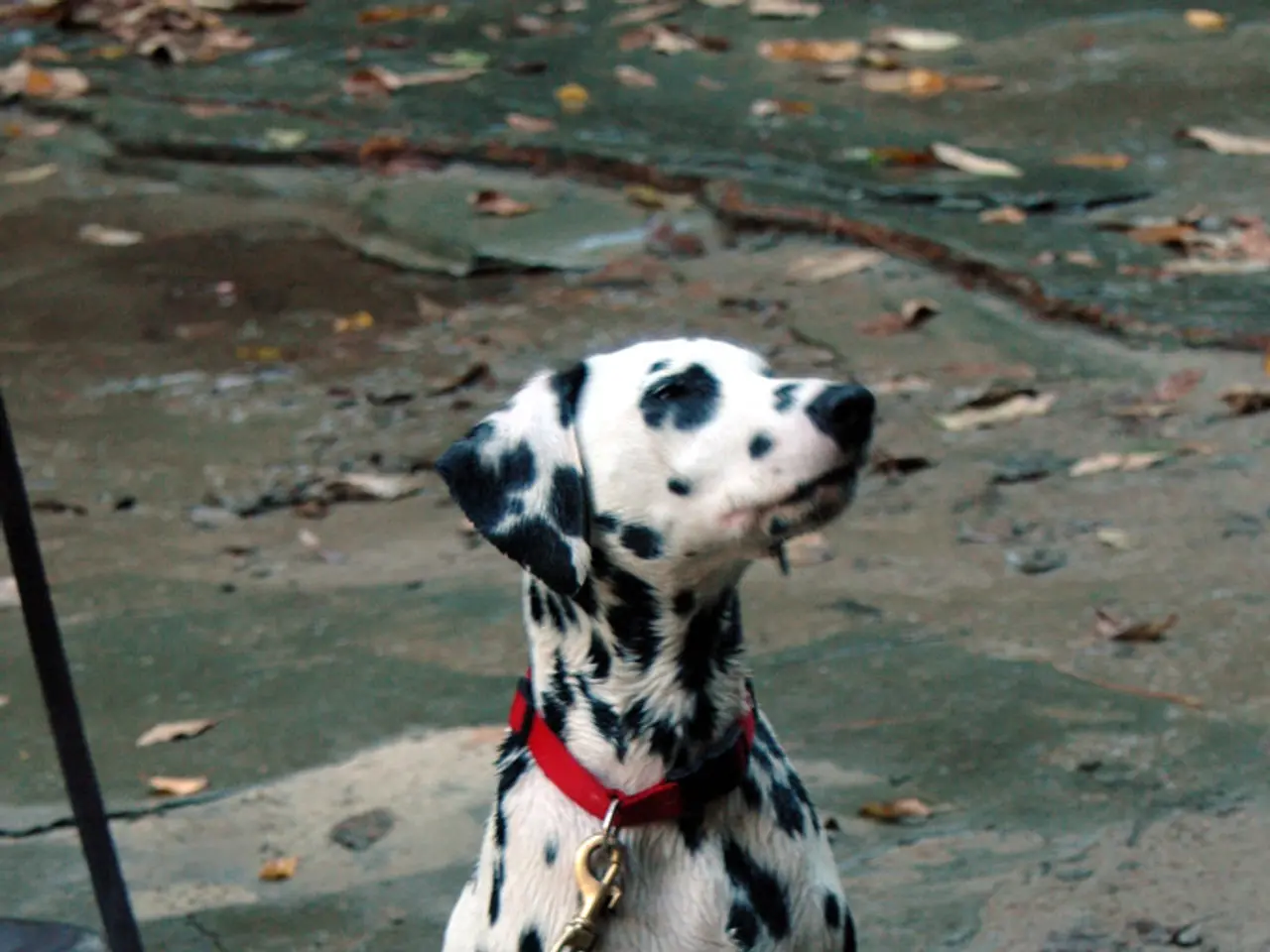Insufficient supply of seeing-eye dogs for visually impaired individuals in Latvia
In the heart of Scandinavia, Finland boasts an 85-year-old man with his tenth service dog, a testament to the transformative impact these animals can have on people's lives. However, in neighbouring Latvia, the situation is markedly different.
The demand for service dogs in Latvia outstrips supply, a reality that leaves many people with visual impairments waiting for extended periods. This is in stark contrast to Scandinavia, where a person can be helped by several dogs over their lifetime and is not allowed to wait longer than six months for the next one.
The first service dog in Latvia, named Teodors, was ready for work 13 years ago. Today, an association named after him, the Teodors Association, continues to train companion dogs to serve as service dogs. Yet, with only five qualified service dog trainers in the country, the pace of training is slow.
The cost of training a single service dog is approximately 27.5 thousand euros. This figure encompasses two years of work, veterinary care, utilities, and other expenses. Rimi grocery stores aim to alleviate some of this burden through a charity campaign this month, with a portion of certain dog food sales going towards dog training. The Teodors Association also invites donations to help train new service dogs.
The scarcity of service dogs means that many visually impaired individuals face a long wait. As older service dogs enter retirement, the need for new dogs becomes even more pressing. Changing service dogs is a necessity, not a luxury, as age-related limitations in dogs can impact the independence of their owners.
Service dogs also play a crucial role in promoting the fitness of their owners, requiring them to take the dogs out at least three times a day. This regular exercise can significantly improve the overall health and well-being of both the owner and the dog.
The high expense, limited funds, trainer availability, and dog sourcing are common challenges faced by service dog training programs worldwide. In Latvia, these challenges are particularly pronounced due to the absence of large-scale dedicated service dog infrastructure or funding.
For precise figures and detailed challenges specific to Latvia, contacting local service dog organizations or Latvian disability support agencies directly would be necessary. However, it is clear that the broadly recognized hurdles centre on the high expense, limited funds, trainer availability, and dog sourcing.
As the demand for service dogs continues to grow, so too does the need for increased funding, training resources, and public awareness. By supporting organisations like the Teodors Association, we can help ensure that more people with visual impairments in Latvia can benefit from the life-changing companionship of a service dog.
- The demand for service dogs in Latvia exceeds the available supply, leading to extended waiting periods for people with visual impairments, in contrast to Scandinavia where multiple dogs can be provided over a lifetime.2.Service dogs not only aid individuals with visual impairments by providing companionship, but they also encourage fitness and exercise, enhancing both the owner's and dog's health-and-wellness.
- To help address the scarcity of service dogs in Latvia and contribute to the pet industry, Rimi grocery stores are running a charity campaign this month to support service dog training, while the Teodors Association invites donations to train new dogs, recognizing that service dogs play a vital role in lifestyle enhancements, transport assistance, and fostering a sense of well-being for their owners.




